|
26/9/2016 0 Comments 5 More Ways to Make Time to Write IF YOU'RE anything like me, then you'll know what it is to struggle with time. There are so many things that I want to accomplish. My first novel is mid-revision. I'm working on a collection of short stories, while maintaining a blog. There's also a tantalizing idea for a novella, just begging to be written, buzzing around in my mind. Not to mention those half-finished stories just sitting on my hard drive and the five dozen books on my to read pile. Phew! Having a full-time job, though, takes up a lot of my time (after all, a girl's gotta eat). So what do you do? First of all, check out this blog post. Today's post is an extension of that. Or, if you can't be bothered to click away, check out these five MORE ways to make time for what you love -- writing. :-) 1. Make up lists -- I tend to be more productive when I'm working through a checklist. Not only does it give you a sense of accomplishment, but you'd be amazed at how much difference a little scrap of paper can make on a busy day. It can be hard keeping track of what needs to be done and when. Your poor multitasking brain can't possibly be expected to retain all the information it's fed. At the end of each day, take some extra time to list all the things you'd like to accomplish tomorrow. When you wake up the next day, you can then work your way down your list, leaving your mind free to focus solely (almost) on the task at hand. Wunderlist is a great task managing app that you can use with pretty much any device. Using one account, it will sync to all your devices so that you never need be without your daily lists. I can also recommend Trello, which is what I've been using for the past couple of weeks. Of course, good ol' pen and paper will also do the trick! 2. Set realistic goals -- When you have unrealistic expectations, your productivity is only going to plummet. You know where you want to be, but there's so much to do before you get there. You can't seem to make yourself focus. You put it off, promising yourself that tomorrow will be a better day. But that day never comes. Stop, and envision where you want to be. Take a step back and start mapping how to get there. Planning is the key here. You're not being productive because you're overwhelmed by the sheer size of your target. Break it down into manageable chunks and take it step by step. Remember- slow and steady wins the race. 3. Time Management -- It's your lack of time that is holding you back. Surely, you just need to wait until you have more time, right? Wrong. You will always feel like you need more time. The fact is, you will never get it. Stop waiting for the right moment and make the present moment work for you. Manage your time to fit more into your day. What inessential things can you cut from your day, or your week, to maximise your time? 4. Pre- activity rituals -- You finally have an hour to yourself. But getting into the right frame of mind when you're not already there can be hard. It doesn't have to be an uphill battle though. By having your own pre-activity rituals or routines, you can retrain your brain to work for you. Doing the same few things before you begin each session will help you get into the right frame of mind to write. It doesn't have to be much. It can be something as simple as making yourself a cup of coffee, or setting your work space in a certain way. Make a playlist of songs that get you motivated and listen to it for 30 minutes. What ever works for you. You may subconsciously already have one. Embrace it! 5. Take time off -- Finally, take time to refuel every now and again. It's okay to push yourself. Hell, sometimes the only way to get anything done is keep going after you hit your limits. But you can't do this indefinitely, certainly not without sacrificing quality. It's important to take a step back every once in a while. Take some you time. Read a good book, have a hot soak, treat yourself to a lie in instead of setting the alarm to work on that project. When you reach burnout, it can take twice as long to refuel than if you'd just stopped a little sooner. Here's some food for thought -- you accomplish more when you enjoy what you do. Find your passion and stoke the fire at every opportunity. Do what you love; smile, laugh, always aim for more. Never settle for anything less. Like this post? Sharing is caring. Give me your thoughts in the comments below!
0 Comments
This past couple of weeks, I've been listing the different ways you can re-inspire your muse. Today, I'm completing that list with the final eleven points.
Missed a post? Catch up with part one here and part two here. Give me your thoughts in the comments below! THERE'S NOTHING worse than wanting to get things done, but feeling creatively dry. You're ready to write, but the words won't come. You sit down to paint, but your vision just doesn't flow. It happens to us all at some point or another.
That doesn't mean we have to accept it.
Like this post? Catch up with part one here and look out for the final part next week. Give me your thoughts in the comments below! Sometimes, we push ourselves too much. If you insist on doing this frequently, at some point you will reach burnout. This is bad news for your muse.
But fret not. If you're stuck, this list should help your creative self get back on the right track.
Like this post? Look out for the second part next week. Give me your thoughts in the comments below! 13/8/2016 1 Comment On the Search for Inspiration
 Roath Park Roath Park It's important to take a step back every once in a while and take a look at the big picture. Why are you doing what you're doing? Is it because you enjoy it? If so, are you still enjoying it? If you can't answer that question, then it may be time to reassess your life goals. In my case, I'd written myself into a rut. I was doing the same things every week, writing in the same two places all the time and I wasn't really enjoying it. Don't get me wrong, I DO enjoy writing. I'm passionate about the words I write. Writing is a big part of who I am today. But I stopped experiencing new things and became almost mechanical, closing myself off to the world when I write. As a direct result, I wasn't allowing myself to be inspired. Standing in Roath Park, it's hard to believe that you're in the city. Cardiff has lush greenery to rival any countryside view, but step outside of these bubbles of tranquillity and you'll find the concrete jungle you'd expect from any city. It seems to have the best of both worlds.
That, my friends, is about as much as we can hope for. Because once we lose inspiration, we become lost ourselves. So, seek it often and everywhere. And know when to step away.
What have I got for you this week? Well, the subject of this post is a bit of a giveaway -- no pun intended! ;-) That's right, I'm running a competition. Win a lifetime license for Scrivener writing software! For those of you that don't already know, Scrivener is the ultimate writing tool. Used by beginners and professionals alike, Scrivener packs everything you could possibly need into one gigantic programme, placing a wide array of tools at every writer's fingertips. You can visit the Scrivener website and read all about it here. Then, you can pop back and enter the giveaway, as well as increase your chances of bagging the ultimate writing tool here or here. Good luck! 25/7/2016 3 Comments The Struggles of a Newbie Writer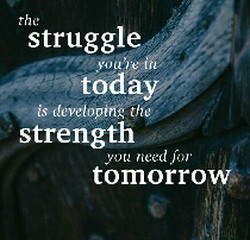 I stumbled upon this old blog post and felt that it perfectly summed up my my reason for being a writer in a way that I can't currently top. It also gives a little insight into the process of writing a book, starting with no previous experience and the simple need to write. IT'S HARD TO imagine how you'll feel after finishing a long-term project, especially one that really means something. Will you feel relieved or sad? Elated, or put off the whole experience for life? Well, while plugging away at my first novel, picking it up and playing with it like a cat with a half dead mouse, only to drop it again (rinse and repeat), I never thought that I'd get to the end. Looking back, it's easy to explain my wavering commitment.
The Wrong Frame of Mind Crimson Touch began its life many years ago, not as book of any kind, but as a form of therapy. At the time, writing was the only thing that could give me the release I needed. I could take all the negativity in my head and pour it into the page, turning it into something positive in the process. The result of this was an amalgamation of everything I had been through -- converted into the form of a fictional character. Years later, that same character still buzzed around in my mind. He haunted my daydreams and plagued my thoughts, never too far away. I frequently found myself wondering what his story was. When I finally did commit to taking the character further, it was to get him out of my head. I had no idea what I was in for. In it for the Long Haul I don't know about you, but before I started writing I was a different person. Aimless and bored, I found it hard to be passionate about anything. I was average at most things I put my hand to and had picked up the nasty habit of getting by on minimal effort. This made me lazy. I wrote half a draft, then gave it up as a bad job. It's difficult to pinpoint the exact moment I decided to give a damn. But that was the moment when everything changed. Starting from scratch, this time I was in it for the long haul. Holding back From that point on, I became someone I wanted to be. Focused, driven, passionate; I had purpose. I told anyone who would listen that I was writing a book. I got the same reaction from most people -- doubt and, god forbid, sympathy. They didn't believe I could do it. But the more people I told, the harder I was making it for myself to turn back. I read book after book on writing advice, articles on plotting and magazines that talked about style and voice. I read novels through the eyes of a writer, as well as a hungry reader. Slowly but surely, the words were filling the screen. What I didn't realise, though, that I was still holding back. Emotionally. 'There is nothing to writing. All you do is sit down at a typewriter and bleed'- Ernest Hemingway It's natural to want to shield yourself from emotional discomfort. But going to that dark place in your heart and actually living it, feeling it, is necessary if you want it to be real for others. After all, how can you convince anyone that your characters are worth the emotional investment if you're not willing to go there yourself? Writing the first draft of Crimson Touch has been a journey of self-discovery. I've learned what kind of person I am, as well as how to write a book (and how not to!) and actually finish what I start. Of course, writing a book is only the first step. The next few will be just as hard -- and just as rewarding. Revision.  IF YOU want your characters to jump off the page as your readers progress through your story, they must be believable. In fact, there are many key ingredients to creating vivid, life-like characters. I've covered the subject of character development in a previous blog post, (you can check that out here,) but today I'm talking about fatal flaws. First, let's make sure we're on the same page. What exactly is a fatal flaw? Fatal Flaws -- a Brief Introduction Fatal Flaw -- a literary device that can be defined as a trait in a character leading to his downfall. The character is often the hero of the literary piece. This trait could be the lack of self-knowledge, lack of judgement and often it is hubris (pride). http://literarydevices.net/ No two characters in your world are alike. They have likes and dislikes, obsessions and fears. Their point of view of the world is unique. Their minds work in different ways. Their past experiences dictate the individual way they respond in any given situation, and it's this that makes a fatal flaw so deeply rooted within your characters. So, why is this important and how does it fit into my story? I'm so glad you asked. The Varying Types of Flawed Despite its misleading name, fatal flaws don't always have to be fatal -- they can range from minor inconveniences to major impediments. However, whatever degree of flaws your character possesses, they will always interfere with his or her journey. Your character's fatal flaw (or flaws) will be a part of them, a negative trait or quality that comes as naturally to them as breathing. They may or may not be aware of them. They can like or dislike them, but they can't run away from them. Examples of such flaws are a quick temper, jealousy, pride or cowardice. And they don't always have to be a directly negative trait, either. Sometimes you can take a positive quality and amplify it, until its crippling effects become indirectly negative. For example, selflessness, ambition, perfectionism, and self-preservation. Despite its origin, though, there will come a time within your story when these fatal flaws become obstacles in your hero or heroine's path, preventing them from succeeding. Your characters will have to overcome their own personal flaws in order to achieve their main goal. Choosing the Right Flaws In order to choose the right flaws for your characters and their story, you need to know them intimately. For the most part, writing the first draft of a story is an act of discovery. Whether you outline first then write, or make up the outline as you go, (the age old pantsers vs plotters conundrum, my friends, which is another blog post!), you may not immediately have a good idea of what flaw matches up with who -- especially if you're working with multiple points of view. But sticking any old flaw on whichever character happens to take your fancy is not the way to go about assigning a tragic flaw. Think about your character's personality, their strengths and weaknesses. The right flaw not only enhances your perfectly imperfect hero, but the story, providing internal and external conflict as a result. Play with different combinations, see how they pan out. You may find that assigning the right flaw to your character unlocks a piece of the plot you didn't even know was missing. Having imperfect characters with a clear weakness and blind spot also helps your readers identify with them. Think about it -- no one is perfect. Creating the a beautiful, brave hero to fearlessly jump in and save the day in every scenario may look and feel great your head, but why would we cheer him on when we know he can't fail? How can we relate to a character that seems to be perfect in every way? We as human beings don't know how to relate to perfection because we're not perfect. But failure is something that we can all relate to. In Summary Flaws are vital part of any vivid character. They bring us closer to them and allow us to relate, or even sympathise, with that character. Fatal flaws are essential to plot, as well as character. They provide obstacles for our characters to overcome, or not, in order to reach their main goal. They also provide many internal and external conflict opportunities that enhance the overall reading experience. Like this post? Sharing is caring. Give me your thoughts in the comments below!  SOME PEOPLE suffer from a lack of ideas. Their well of creativity has run dry and so, they must take the time to replenish it before they try to squeeze out any more water. This blog post is not for them. This post is for those who suffer from the opposite problem -- too many ideas. But wait, you might say. How is it possible to suffer from too many ideas? Surely, that's a good thing. Well, picture this. Your ideas are coming thick and fast. You're excited, inspired even. They are all you can think about. At work, going to bed... Buzzing around inside you. Finally, you sit down to work on your many enticing ideas. Where should you start? Which one is most deserving of your attention? As you work on your novel, that short story idea pesters you constantly. A poem sits at the back of your mind. Oh, and don't forget about that self-help book you've been meaning to write for a while now. You'll need a doppelganger or three to get to get everything you want to do done. Yes, having too many ideas can be just as crippling as having none. Indecision, that feeling of being overwhelmed by your hefty to-do list, procrastination -- some of the many negative side effects of having too many projects on the go. (Even if you haven't started them yet!) Are you listening now? Good, because I have some tips for you.
*NB -- Indecision is not a real person. As much as I like to picture a little blue creature with a notepad running from idea to idea in our minds.
Like this post? Sharing is caring! Have a burning question for a future blog post? Post it in the comments below. I'll do my best to answer it. 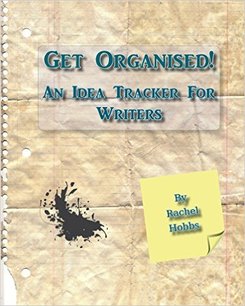 UPDATE: My journal Get Organised! An Idea Tracker For Writers is now available to buy online. If you've struggled with the above issue, then this may help. "Get Organised! An Idea Tracker For Writers is the perfect way to keep track of those moments of inspiration, strange dreams, daydreams, creative ‘aha!’ moments and project ideas that you don’t have time for now, but don’t want to forget. Each idea section contains prompts to guide your thoughts, space to doodle or brainstorm, a simple idea rating system and plenty of lines to expand on those valuable ideas. With this book, you need never lose an idea again!"  WHETHER YOU write fiction or nonfiction, novels or how-to guides, you are a writer. You put words on a page, one after the other, and you do so on a regular basis. But why do you write? Is it an enjoyable hobby? A steady source of income? Do you have a message that people need to hear? Do you write for you, or for them? Writing for You
Writing for Them
Can You Do Both?
What do you think?  MORE OFTEN than not, it only takes one great character to tell a good story. The reader sees the world through the eyes of the chosen narrator, experiencing what they see, hear, think and do from them and them only. Sure, there's often a large cast list of characters who wander in and out as the plot requires. But there is only one steady point of view. Fascinating, but I came here to read about multiple points of view. Get on with it. Of course. (Mutter, mutter...) Sometimes, though, a story can only be told well with more than one viewpoint. For example, we could write a thriller story that starts from the point of view of the victim. Then, at some point we could switch to the point of view of the offending character and continue from here. There are several reasons a writer may consider doing this, one reason being to keep readers on their toes. It would be difficult to stay comfortable for too long, as just as one version of events is established, the writer can then turn the story on its head and provide a fresh, if somewhat conflicting point of view. This will leave all kinds of questions hanging in the mind of the reader, making the conclusion all the more satisfying once reached. I've put together a basic list of do's and don'ts, which you can follow as a rough guide. Don't let others opinions on this subject put you off attempting to write this way yourself. Practice makes better! DO/ Add value with each point of view -- One way to ensure this happens is to create two very different characters to give a voice to. What can they add to the story that no other character can? What do they alone know that no other character does? Their contribution must add to the story's overall value. DON'T/ Give every member of your colourful cast a starring role -- You may be able to think of a few exceptions to the rule here, (ahem, G. R. R. Martin, I'm looking at you...) but I strongly advise you not to compare yourself to the pro's. Think about it. Not only will your plot be stretched thin trying to cover so many large roles, (thin enough to poke holes in?) but it will be ten times harder to create the sense of intimacy with your readers that you can achieve with one, two or even three protagonists. DO/ Give each viewpoint character a unique voice and personality -- Ideally, a reader should be able to tell who's point of view they are seeing the world from within the first paragraph (or so...). The sooner the better. This avoids unnecessary confusion, especially when writing in first person style. Give each point of view their own quirks that shine through in your writing. Personality, language quirks, mannerisms, outlook on life... There is so much you can play with here. Have your characters own their page time. DON'T/ Recap an old scene from a new perspective -- Okay, I just want to clarify something before we go any further. This can work when written in the right way and not over-used. But generally, this is not the idea of writing with multiple points of view. The idea is to use each different perspective to advance the plot in new and exciting ways. And if you really must use the same scene twice, make sure it reveals something new. DO/ Show one point of view character through the eyes of another -- Not only does this provide further insight on the inner workings of our protagonist's mind, it also adds depth to their character. For example, Character A may be shy and insecure. We know this, as we've been inside their head. But Character B does not know this. They see an aggressive, unfriendly person who isn't interested in being friends of any kind. Is this true? No, of course not. But Character A's insecurities are often misunderstood and their crippling shyness, in this case, is taken as standoffish. Using multiple points of view in this way adds a delicious complexity to the overall plot. DON'T/ Neglect one point of view in favour of others -- There's no hard and fast rule that states how much page time each of your characters should get, but it's important not to forget about anyone. You included each point of view for a reason and your readers will expect some level of consistency. If too much time passes without hearing from one character, then it will be difficult to form an emotional connection to them. In other words, they will be harder to care for. Your point of view rotation doesn't have to be equal, just smart. I could go on and on about this huge topic, but I'd love to hear your thoughts. What are your experiences with multiple point of view? 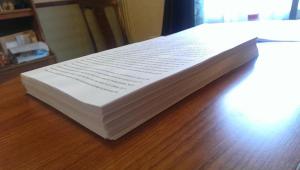 FINISHING THE first draft of anything is a great feeling. Finishing the first draft of a novel feels like you've just climbed a mountain -- and survived to tell the tale. It's the best feeling ever. But how exactly do you get there? Well, one way to get through that massive task is to banish your inner editor and just get it down. In other words, give yourself permission to write a terrible first draft. Okay, you probably saw that one coming. But stick with me and I'll show you why this works like a charm. You can't edit a blank page -- The blank page, so white and intimidating. We've all been there. You stare at the screen for a bit, then type the first line. After reading it back, you delete it and replace it. Maybe then you get three more lines out, before deleting the first two... Who can write this way? Perfectionism is crippling your story. One way to combat this is to accept that you're going to make mistakes. Yes, a lot of what you write is probably going to suck. Yes, your descriptions may be lacking and that character you thought you'd love slightly overbearing. But guess what? The first draft of anything sucks. Not convinced? How about a second opinion. "I'm writing a first draft and reminding myself that I'm simply shovelling sand into a box, so that later I can build castles. -- Shannon Hale" How about now? That makes sense, doesn't it? In other words, you can't build a sandcastle as you go. You can try -- first I'll build a tower and the windows, then the door, then the second tower... -- but it doesn't work. Your 'castle' needs to be able to support itself and in order to do that, it needs a strong foundation. Did I lose you with the sandcastle analogies? To summarise, your novel needs a strong foundation before you can shape it and make it pretty. First drafts can be turned into sand fortresses, blank pages cannot. You can discover what does and doesn't work -- The mind is an amazing tool. If you've read the likes of Stephen King and George Martin, you'll know exactly what it's capable of. You become truly absorbed in the stories they weave, even grow to deeply care about the characters these stories revolve around. But how did all that come from one single mind? (And why are you comparing me to these giants?) The truth is, even the best writers need to put their novels through a second draft. In fact, it is more common for an accomplished writer to go through at least three redrafts of their manuscript before they can think about calling a novel finished. It's also not uncommon for a writer's draft count to reach double figures. Think about the last book that really sucked you in. These amazing words didn't arrive on the page fully formed, perfectly phrased and ready for their readers' hungry eyes. The went through a creative process of trial and error, discovery and elimination. Take Stephen King, for example. He's surely written enough books to fill his own bookstore at this point (now there's an idea...) His process still involves a standard of three drafts before he'll consider a manuscript finished. You won't know if your ideas will fly until you throw them off that cliff. (Or... So to speak. Okay, no more analogies. I promise!) Your unrestricted mind is a weird and wonderful place -- When writing the first draft of a novel, we tend to have high expectations. I know I did. When I first started writing Crimson Touch, I had this awful habit of polishing as went. I was so focused on producing a quality first draft that I was restricting my novel's natural growth, without even realising it. An idea is a wonderful, fragile thing. One moment it's there and then, if you're not quick enough, it's gone (possibly forever.) If you're filtering what kind of ideas you get at this early stage, then your novel will fail to evolve unaided. What I mean is that when you allow your mind to be open and impartial, at some point, you'll find that your characters will begin to breathe by themselves. They'll pull you in all sorts of unexpected directions. Your sidekick may show you his true colours and out-villain the guy you actually had planned for the role. Your plot will take interesting turns that you hadn't planned for. Your landscapes will come alive. Your creation becomes real. Don't get me wrong -- not every plot twist will be right for your story. Some characters will mislead you, and some will fail to live upto their full potential. Your sidekick's wannabe-villain ego may be bigger than his intended role, in which case, chop him down to size in the next draft. But the first draft of your story is a process of discovery. And your unrestricted mind is a weird and wonderful place.
Flash fiction is a style of fictional literature of extreme brevity. There is no widely accepted definition of the length of the category. Some self-described markets for flash fiction impose caps as low as fifty-three words, while others consider stories as long as a thousand words to be flash fiction. (Click here to read more...) Either way, I'm looking forward to getting to know you. Take a look and let me know what you think. Like what you see? Sign up to my newsletter and I'll keep you updated on my future projects.
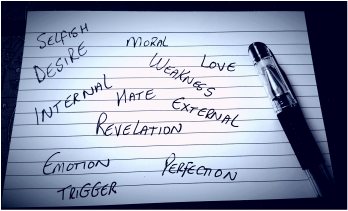 YOU PROBABLY ALREADY have a good idea of what character development means for your story. Here's a definition, just so we're on the same page Character Development -- the task of creating a character and building on them (working out appearance, history, mannerisms and so on,) OR the changes a character undergoes during the course of a story. I'm referring to the second kind. So, where does one start with developing their characters, you might ask? Good question. In order to be able to effectively develop your character, they need to be as human as you or I. Before you begin to protest, I'm not suggesting that you stick to your own species. I love elves as much as anyone. (And vampires, and aliens...) What I mean is that your characters should be far from perfect. Give them flaws and weaknesses, fears and failures. Make them real. Once you have a perfectly flawed character, you're all set. So, what now? Set for what? Patience, young grasshopper. All will become clear. Your character is going on a journey. Your story, or plot, is the road map. On their travels from A to B they may experience magical wonders, or mind-blowing atrocities. They may experience betrayal, love or fear. The people they meet may change their perspective or reveal a side of themselves they didn't know existed. I could go on. Chances are though, that they will experience something. Why is this necessary for my story? People change over the course of their life and so should your characters. We are the sum of our experiences, both the good and the bad. A one dimensional character will walk through a story unchanged, unaffected by what is going on around them or happening to them. They magically have what it takes to get through any situation and don't have to grow up, or learn any valuable lessons in order achieve their goal. Is this believable? Of course not. None of us go through life this way. A two dimensional character however, is relatable. This is how we become emotionally invested in the characters we love. Think of your favourite books. Where does your favourite character start, both physically and emotionally? Where do they finish? Are they different from when they started? There are many different types of journey your characters can undertake. For example... Zero to Hero -- for this journey our protagonist starts out small, but by the end of the story he becomes the hero he's always meant to be, allowing him to save the day. At the beginning, there doesn't seem to be anything out of the ordinary or spectacular about him. In fact, you won't find a more unlikely hero anywhere. Maybe that blonde beefcake who upstages our protagonist at every turn should have actually been made the hero of the piece. But, every 'zero' has that something extra special locked away deep inside them and throughout the story, his character undertakes a radical transformation. From zero to hero, our protagonist's life will never be the same again. Personal Growth -- here, our developing protagonist faces not just external difficulties, but internal opposition also. This can be anything from a crippling phobia, to a lack of self-confidence, to the inability to let go of the past and move on. Out protagonist goes through a personal journey, battling inner demons, a perceived weakness or whatever it is that is holding them back. Simultaneously, external opposition serves to challenge the protagonist and force them far beyond their comfort zone. This will usually push them to the point where they must conquer whatever internal issues that hold them back in order to restore order or save the day. For this type of character development, the experiences they face on their journey push and change them, forcing them to confront their outstanding internal issues in order to deal with an even bigger external threat. Unlike the previous type, our protagonists radical transformation is, if any, internalised. Generally, they are still the same character, just a shiny new version of themselves. Tragic Downfall -- not all characters have to develop for the better. Some protagonists are more suited to their inevitable decline rather than ascension and, instead of becoming a better version of themselves, their actions lead them down a much darker path. Tragic heroes see the world in a different way and often, their perception of it is distorted by their own negative traits. Here, they may choose to somewhat redeem themselves towards the end, or accept their new selves for who they are and plunge into darkness. Either way, they have a rocky road ahead of them. Character development is a huge topic. Having a basic grasp of it though, is important for any good story. I'd love to hear about your characters. Who are they? What are their strengths and weaknesses? Let me know in the comments below.  LET'S FACE IT -- we're all busy. We all have responsibilities that require chunks of our time and, more often than not, that time slowly depletes throughout the day. Sound familiar at all? With the best of intentions, it's super easy to neglect your projects. "Tomorrow will be better," you tell yourself. "I'll power through it then." And tomorrow, you're just as busy. The next day doesn't look good either. Before you know it, your project is collecting dust. Let me tell you something that will make things crystal clear: If you don't make the time to write, then you won't write. No one else is going to do it for you. So, how important is your project to you? If you're still with me, then I salute you. More power to you! Let's see how you can make the best of your time and make your writing a priority in your life.
(Okay, if you nodded just then, move onto method two... And remind me not to tick you off.)
(Sounds good, right?) For example, if you get up in the morning and watch an hour of TV over breakfast, try using that golden hour to jot some ideas down, work on a short story, contribute to the latest chapter of your novel... Your options here are endless. Yes, you may enjoy vegging out in the morning to your favourite programme, but do you need to do it every morning? Compromise. Mix your week up a bit. And you don't have to be a morning person to make this work for you. Limit your Facebook time and use the extra to be productive. Use online shopping as a reward, not a distraction. Focus on your immediate task. Try not to let your every whim and impulse control you. Don't want to give anything up in order to write? That's fine too. You just need to be a little more disciplined, my friend.
What are yours? Record your activity for a week. When are you most productive? Is there a pattern? If you discover your optimum time to write, protect it fiercely (where humanly possible). These are your initial go to writing times.
(You've made your point. Now, get on with the method!) Carry a note pad around with you wherever you go. It doesn't have to be big, it can be handbag sized, or even shirt pocket sized. And whatever you do, don't forget to carry a good pen, too. These are your basic writer's on-the-go tools, perfect for unplanned moments of productivity and brilliant bursts of inspiration. You can also use your phone or tablet, if gadgets are more your style. Writing with a phone can be fiddly for longer paragraphs, but speaking them is easy. There are two ways you can do this:
Both of these methods can be effectively used in a hurry. They're also good for those chaotic moments when your hand struggles to keep up with your epic imagination. As for the reams of notes you may have made on your project, well... I know what you're thinking. Why should I carry them around with me all day, you say? After all, you may not even get to use them. Fear not, dear writers. You can carry them around with you without breaking your back. (I'm going to go ahead and assume you have a mobile phone with a camera. If you don't, I apologise. But you really are missing out!) Take a picture of all important notes and keep them stored in their own folder. This way, you'll have ready access to everything you need to pick up where you last left off. You can also email yourself typed notes, or carry them on a memory stick. I hope you found something useful in all that. You can use all of these methods to make time for your writing projects, or just pick the one that suits you best. Maybe you have a better idea. In any case, I'd love to know what works for you. There is one thing of which I'm absolutely certain -- writers write. 15/5/2016 0 Comments We're Live!Welcome, folks, to my brand new website. Go ahead and take a look around. Make yourselves at home because from now on, this website will be central hub for all my writerly goings on -- for now and for the foreseeable future.
I have lots to share with you over the coming months. I have lots to talk about. I'm looking forward to getting started and in good time, to sharing lots of great content with you. But for now, stay and have a look around. If you have any feedback, leave me a comment. I'm far from being a website wizard, but your suggestions and improvements will all be gratefully received. |
Rachel HobbsAuthor of dark fantasy Shadow-Stained. Dental nurse by day and writer by night. |
Search by typing & pressing enter






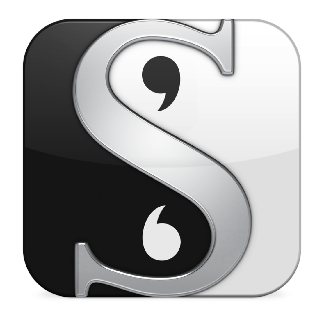
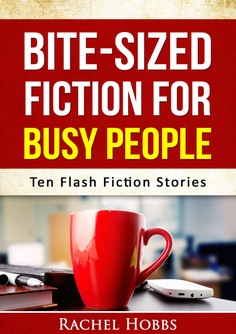

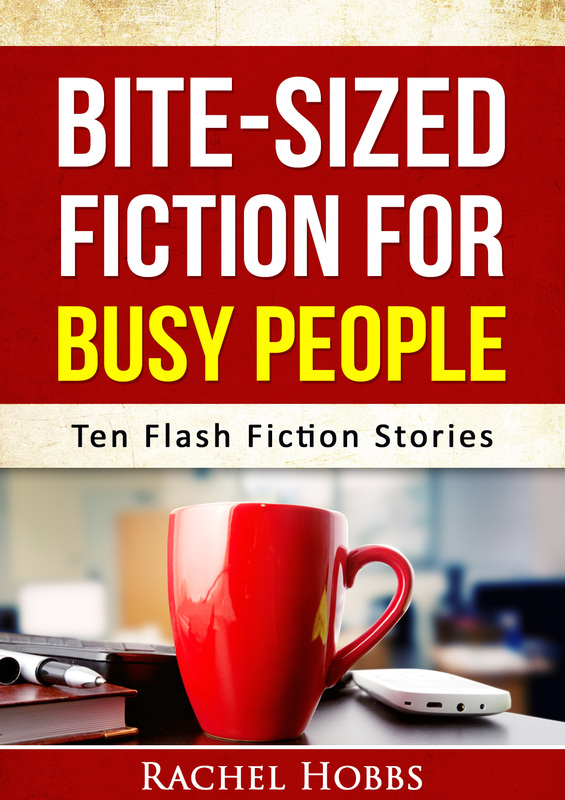
 RSS Feed
RSS Feed
